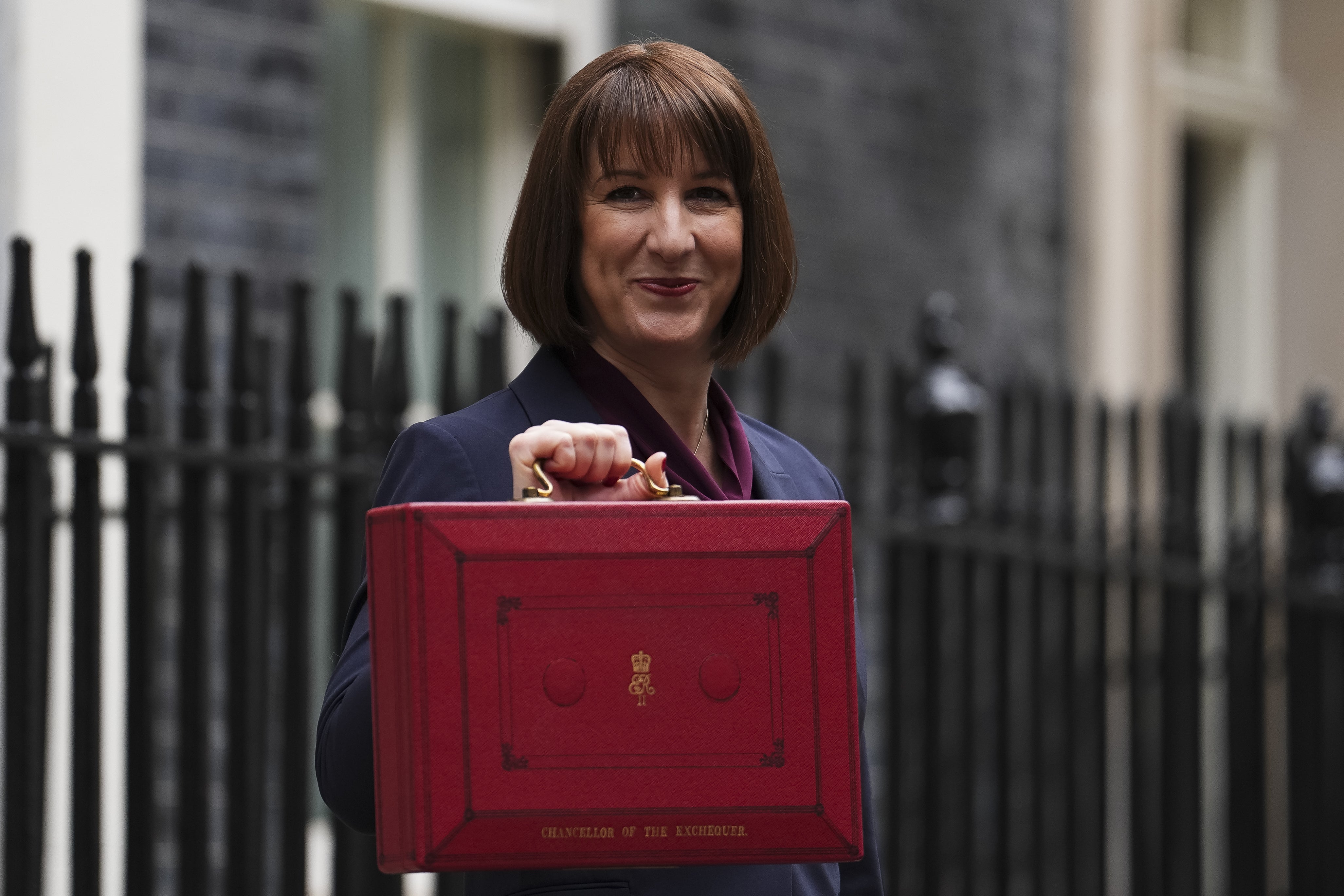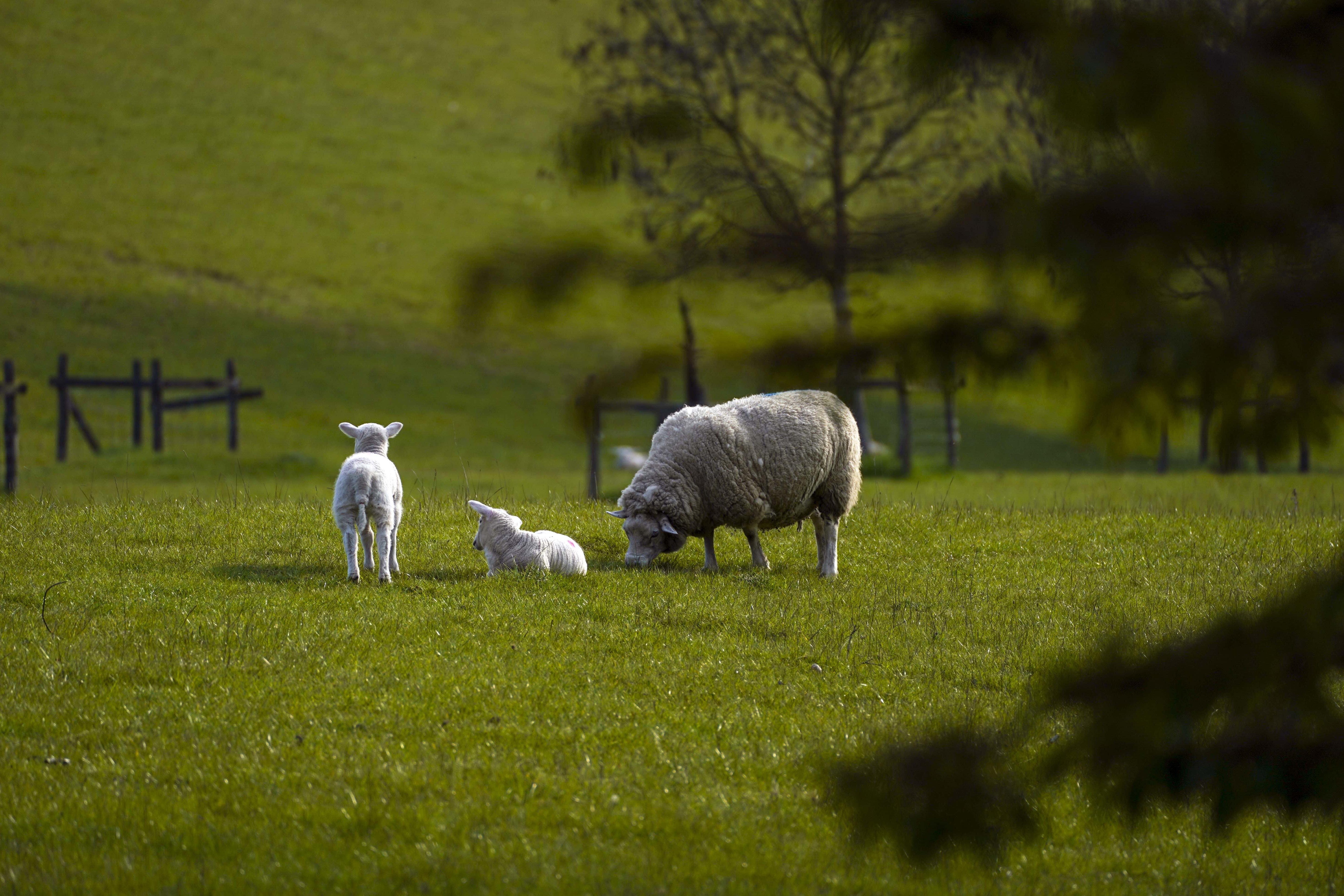Farmers warn 75% of British food production will be hit by Reeves’s tax raid
The NFU’s Tom Bradshaw warned the government had not considered at all the impact on food production
Your support helps us to tell the story
From reproductive rights to climate change to Big Tech, The Independent is on the ground when the story is developing. Whether it's investigating the financials of Elon Musk's pro-Trump PAC or producing our latest documentary, 'The A Word', which shines a light on the American women fighting for reproductive rights, we know how important it is to parse out the facts from the messaging.
At such a critical moment in US history, we need reporters on the ground. Your donation allows us to keep sending journalists to speak to both sides of the story.
The Independent is trusted by Americans across the entire political spectrum. And unlike many other quality news outlets, we choose not to lock Americans out of our reporting and analysis with paywalls. We believe quality journalism should be available to everyone, paid for by those who can afford it.
Your support makes all the difference.Rachel Reeves’inheritance tax raid will hit three quarters of food produced by British farmers, industry chiefs have warned, as the government battles a growing backlash over its extension of death tax.
Under plans announced in the Budget, inheritance tax will be charged at 20 per cent on farms worth more than £1m, although the chancellor has said that in some cases the threshold could in practice be about £3m.
The move has triggered backlash from farming and rural communities and led to a dispute over the number of businesses that would be affected.
While the government has insisted that only a minority of farmers will be impacted, Tom Bradshaw, chief executive of the National Farmers’ Union (NFU), said around “75 per cent of the total farmed area” would be subject to the extended death tax.

“It’s then logical to assume that they are producing 75 per cent of the food associated with them.
“So there is a significant amount of the food production of this country that is within scope of these changes”, he said.
Mr Bradshaw warned the government had not “considered at all the impact on food production” of last week’s Budget.
He explained: “Very few viable farms would be worth under £1m, but lots of smallholdings and houses with a few acres let for grazing might be.
“The asset value of genuine food-producing farms will be high, given the size they need to be to remain viable businesses; but that’s the value of the asset, it doesn’t reflect its profitability which is often, and increasingly so, very low.”

Environment minister Daniel Zeichner told the House of Commons on Monday that the government’s policy is “fair and balanced”, claiming the “vast majority of farmers” will be unaffected.
“73 per cent of agricultural property relief claims are less than £1 million, the vast majority of farmers will not be affected, they’ll be able to pass a family farm down to their children, just as previous generations have always done.
“It’s a fair, balanced approach that protects family farms, while also fixing the public services those same families rely on.”
He also claimed the government is “protecting the family farms” by discouraging tax evasion.
“I’ve heard people telling me that they are concerned about people coming from outside, coming up with a lot of money and over the heads of local people, buying up local farmland, not because they care about farming but to use it for tax evasion purposes. So this is a policy that can be helpful to family farms and protect them", he told the Commons.
Mr Bradshaw, who met with environment secretary Steve Reed on Monday to discuss the tax, warned of a “militant” backlash from farmers over the issue.
He said the “tractor tax” raid was “completely unfair”, adding that he had never seen “the weight of support, the strength of feeling and anger” over the plans.
The NFU chief said: “We will continue to try and work with the government to get to a resolution but something has to change.
“I have never seen the weight of support, the strength of feeling and anger that there is in this industry today. Many of them want to be militant.
“Now we are not encouraging that in any way shape or form, but government need to understand that there is a real strength of feeling behind what this change means for the future of family farming in this country.”

Join our commenting forum
Join thought-provoking conversations, follow other Independent readers and see their replies
Comments